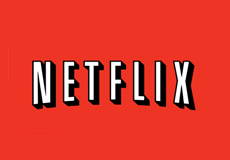Netflix’s stock value has increased 178 percent during 2013, one of the best performing companies on the S&P 500 index. In order to maintain its edge, Netflix may need to be more like Amazon than HBO, with more of a focus on spending than a fixation on profit growth. But Netflix’s practice of dropping unpopular content may give competitor Amazon a new opportunity to secure exclusive rights to additional programming and gain ground over Netflix.
 The number of U.S. streaming subscribers have increased to nearly 28 million, up from 25 million at the beginning of 2013, and 22 million in 2012. Subscriber-wise, Netflix is slightly behind that of HBO.
The number of U.S. streaming subscribers have increased to nearly 28 million, up from 25 million at the beginning of 2013, and 22 million in 2012. Subscriber-wise, Netflix is slightly behind that of HBO.
“For Netflix, building a formidable subscriber base should be a more immediate concern than raising margins,” explains The Wall Street Journal. “Having more users enables Netflix to spread the costs of buying and creating new content. And rising market share should help it raise subscriber fees.”
Most of the positive performance of Netflix’s stock in late 2012 and early 2013 was based upon its content buying. The company made agreements to pay hundreds of millions to Disney and Time Warner each for programming, but this spending may fuel future subscriber growth.
WSJ cautions that Netflix should avoid being too much like HBO, which has a U.S. subscriber base of about 29 million. Netflix claims to be targeting two to three times that, but analysts estimate about 43 to 52 million potential subscribers.
Achieving these goals will require more spending by Netflix to attract a wider subscriber base by offering a broader range of content. But this may prove difficult if Netflix continues to drop content that it deems unpopular, such as a recent deal not to renew rights for Nickelodeon programming.
Amazon quickly signed with Viacom for its exclusive children programming. In addition, Amazon announced on Friday an exclusive agreement to offer PBS’ “Downton Abbey.”

No Comments Yet
You can be the first to comment!
Leave a comment
You must be logged in to post a comment.